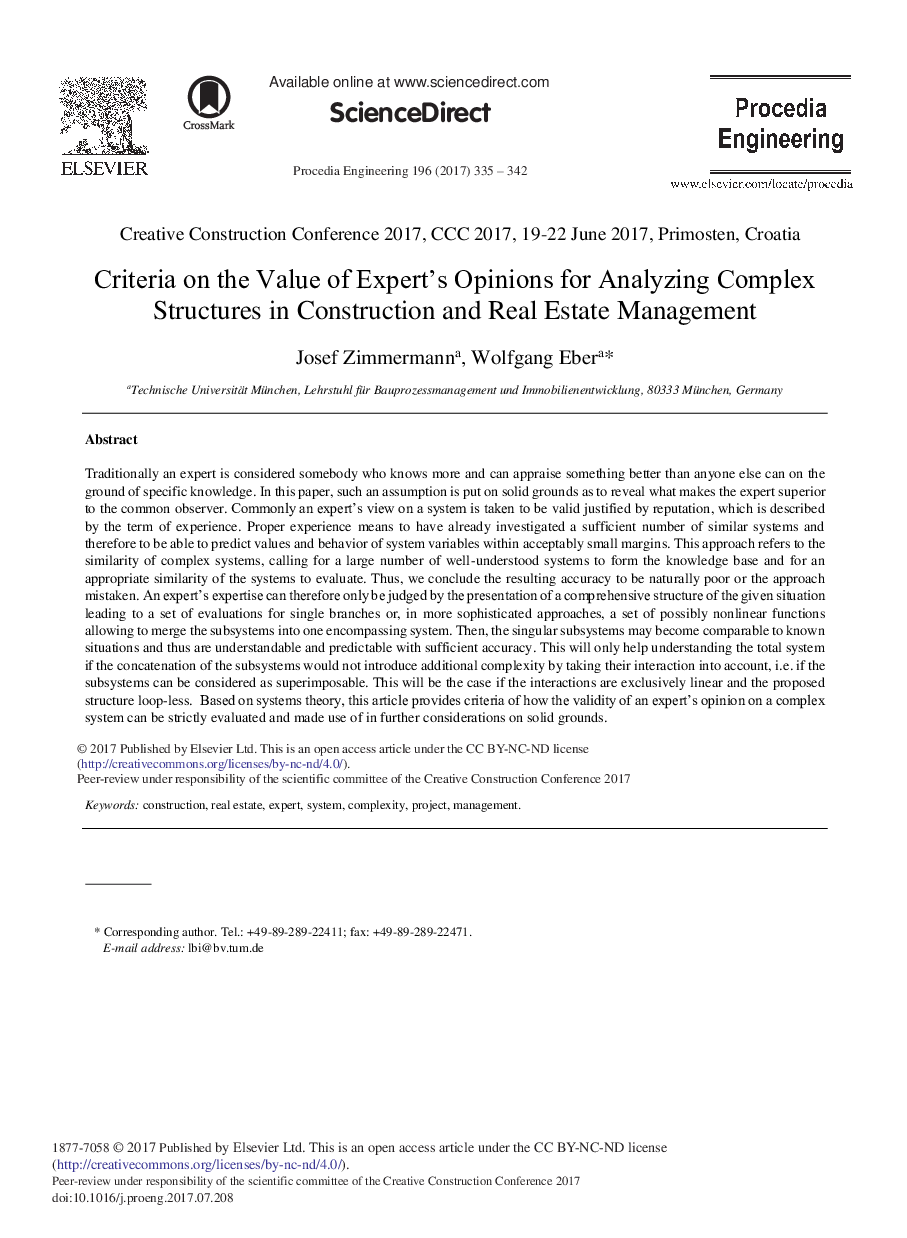| Article ID | Journal | Published Year | Pages | File Type |
|---|---|---|---|---|
| 5026956 | Procedia Engineering | 2017 | 8 Pages |
Abstract
Traditionally an expert is considered somebody who knows more and can appraise something better than anyone else can on the ground of specific knowledge. In this paper, such an assumption is put on solid grounds as to reveal what makes the expert superior to the common observer. Commonly an expert's view on a system is taken to be valid justified by reputation, which is described by the term of experience. Proper experience means to have already investigated a sufficient number of similar systems and therefore to be able to predict values and behavior of system variables within acceptably small margins. This approach refers to the similarity of complex systems, calling for a large number of well-understood systems to form the knowledge base and for an appropriate similarity of the systems to evaluate. Thus, we conclude the resulting accuracy to be naturally poor or the approach mistaken. An expert's expertise can therefore only be judged by the presentation of a comprehensive structure of the given situation leading to a set of evaluations for single branches or, in more sophisticated approaches, a set of possibly nonlinear functions allowing to merge the subsystems into one encompassing system. Then, the singular subsystems may become comparable to known situations and thus are understandable and predictable with sufficient accuracy. This will only help understanding the total system if the concatenation of the subsystems would not introduce additional complexity by taking their interaction into account, i.e. if the subsystems can be considered as superimposable. This will be the case if the interactions are exclusively linear and the proposed structure loop-less. Based on systems theory, this article provides criteria of how the validity of an expert's opinion on a complex system can be strictly evaluated and made use of in further considerations on solid grounds.
Related Topics
Physical Sciences and Engineering
Engineering
Engineering (General)
Authors
Josef Zimmermann, Wolfgang Eber,
